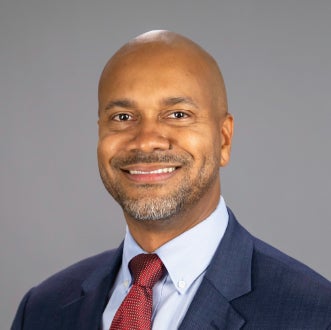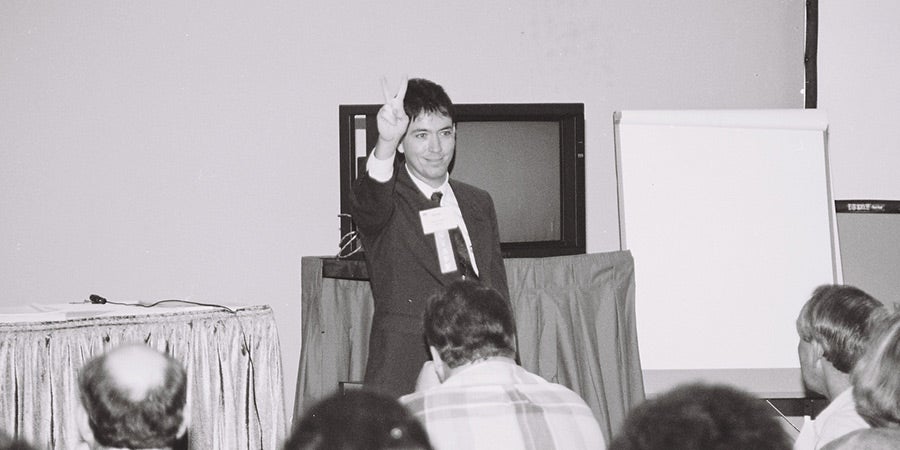3 Key Elements for Productive Board Retreats
When hosted thoughtfully, a board retreat can be one of the most significant events in a board’s work cycle. While regular board meetings allow for deliberation and discussion of school business, a retreat adds a different and necessary dimension to the experience.
“Retreats offer a level of vulnerability and connection with fellow board members that regular meetings do not. During a retreat, we make plenty of time to explore each board member’s personal connection to the district’s vision or mission,” said Hutto ISD Board President Billie Logiudice. “The better we understand our fellow board members, the better we understand the ‘why’ behind their questions and the decisions they make.” Logiudice is a member of the 2022 Leadership TASB (LTASB) cohort, where she is part of a team focused on continuing education for boards. One key experience the team has examined is creating whole-board learning opportunities through retreats.
Experienced retreat planners understand that effective retreats are organized and well-run. Logistics are important, but Logiudice also advises that it is important to give special consideration to preparation, location, and having fun.
Preparation
For the Hutto ISD Board, preparing for the retreat is an important first step. “We clearly lay out expectations prior to the retreat,” said Logiudice. “This means making sure we have a solid agenda and participants understand the desired outcome of our time together. An expectation during our last retreat was that everyone would come prepared to focus intently on creating a shared understanding of our work. We wanted to collectively define our moral imperative.”
Other expectations might involve reviewing literature, board documents (such as team operating procedures or district goals, among others), or completing assessments prior to the retreat. “We ask our teachers and students to always be learning. We need to model that as a board,” said Logiudice. While such preparation is important for a productive retreat, she believes another key factor is preparing board members for the desired relational component a retreat offers. “It’s a time to hear one another’s heart,” said Logiudice. To help accomplish this, she informs board members ahead of time that the retreat is an opportunity for them to be as vulnerable as they feel comfortable.
Location
The trustee mindset is one that focuses on the big picture and the long-term perspective of education and community. The work is continuous and rarely slow paced. If a function of the retreat is to encourage the team to pause momentarily, reflect, and look inward, a change of venue might help foster this desired outcome.
“Think about how often your to-do list gets interrupted by distractions you see around the house. If you do not intentionally leave the house, you will never accomplish the things on your list,” Logiudice said. “The value of getting out of the boardroom is stepping out from the world as you know it and removing much of the distractions associated with ‘home.’”
A change of venue could be a workroom in one of the district’s facilities or an entirely different location within district boundaries, such as a local hotel or retreat center. Boards should consult their legal counsel before considering a retreat venue outside district boundaries. State law prohibits school boards from meeting outside district boundaries except in very narrow circumstances, and retreats are not an exception to the laws that govern school board meetings.
Fun
“It’s easy to get drained and caught up in the hard parts of board work. When that happens, we forget to have fun and lose the joy of serving on the board,” said Logiudice.
A retreat can provide an environment that helps the team relax and have fun. Each board member might define “fun” differently, so it’s important that retreat plans account for varying personalities and preferences. This could include asking team members for input ahead of time.
If your board is not accustomed to having retreats, you might like to use the first retreat as an opportunity to learn about your teammates in a way that improves the cohesiveness of the board and superintendent and makes the next retreat even better. Set simple relationship goals for the first retreat that can be built upon in the future.
High-functioning teams understand the importance of replenishing the will and soul of their team members. Boards might discover the rejuvenation they need through a whole-board learning experience, such as a well-designed retreat. Research indicates that boards perform better when they participate in whole-board learning experiences. Have a conversation with your board president and see how your team might begin or enhance an annual retreat regimen.

Orin Moore
Orin Moore joined the Board Development Services team in 2015. As a facilitator, he performs in-district workshops for board-superintendent teams focusing on goal setting, team building, and board self-assessment. As a former consultant and trainer supporting education-based startups in Harris County, Moore emphasizes the importance of building and aligning a newly formed team. He is skilled at facilitating transition workshops for governance teams experiencing board member or superintendent change.
Moore holds a bachelor’s degree in psychology and a Master of Business Administration, both from Rice University. He is a proud graduate of a “small town” Texas public high school and codesigns the Small School District Seminar held during TASA | TASB Convention. He is a Crucial Learning® certified trainer for Crucial Conversations.





